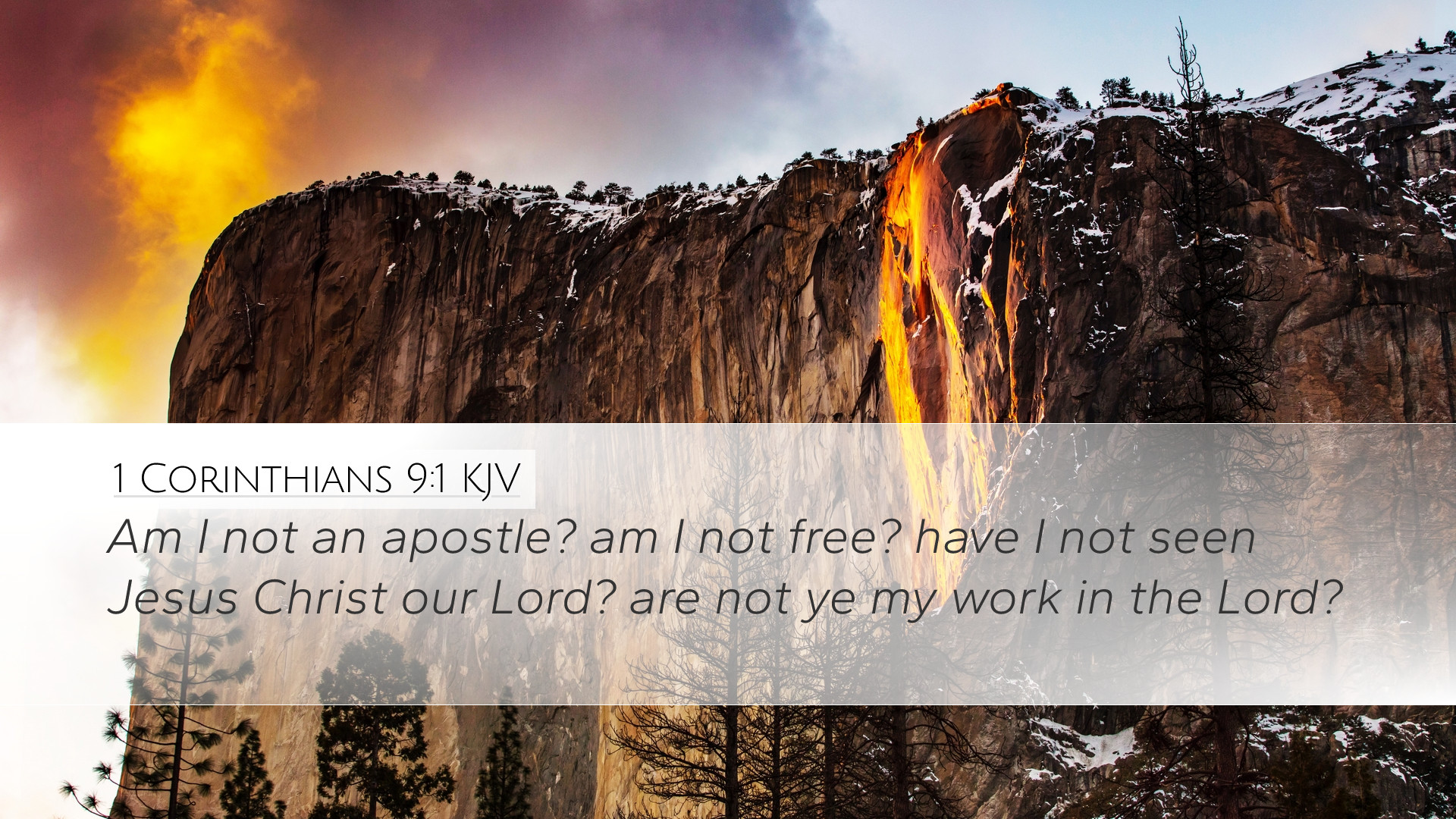Commentary on 1 Corinthians 9:1
Verse: “Am I not an apostle? Am I not free? Have I not seen Jesus Christ our Lord? Are not ye my work in the Lord?”
This verse opens a significant discourse by the Apostle Paul regarding his authority and rights as an apostle. The context of this chapter often refers to the challenge that Paul faced regarding his position and the legitimacy of his ministry.
1. Contextual Understanding
In the preceding chapters, Paul addresses issues of division within the church and the proper exercise of freedom in Christ. His apostleship is questioned, challenging the very foundation of his ministry among the Corinthians. His rhetorical questions highlight his apostolic credentials and the deep-seated relationship he shares with the church.
2. The Apostolic Authority of Paul
- Am I not an apostle? - Paul asserts his apostolic identity. According to Matthew Henry, this remark indicates not merely his appointment but signifies the divine authority vested upon him to preach and guide the church. The apostolic role comes with both privilege and responsibility.
- Am I not free? - Here, Paul refers to his freedom in Christ. Albert Barnes remarks that this freedom enables him not only to live without the constraints of the Mosaic Law but also empowers him to be a servant to all for the sake of the gospel.
- Have I not seen Jesus Christ our Lord? - This question reinforces the legitimacy of his calling and experience. Adam Clarke emphasizes that the appearance of Christ to Paul is paramount; it distinguishes him from other apostles who were part of Jesus’ earthly ministry.
3. The Relationship and Influence
The term “Are not ye my work in the Lord?” serves as a reminder of the Corinthians' transformation through his ministry. Paul references their spiritual growth and salvation as direct evidence of his apostolic mission.
4. Implications for Ministry
In a broader theological and practical sense, this verse imparts critical lessons for pastors and theologians:
- Assertion of Identity: Ministers should recognize and affirm their calling. Paul's declaration signifies the importance of understanding one's role and responsibilities.
- Value of Experience: A personal encounter with Christ is non-negotiable for genuine ministry. Clergy must strive for deeper communion with Christ as they guide others in faith.
- Outcome of Ministry: The success of a pastor's ministry is reflected in the lives of those they serve. The transformation within the church is a testament to their apostolic and ministerial efforts.
- Cultural Relevance: Like Paul, contemporary ministers must navigate their cultural context carefully, ensuring the message of the Gospel transcends societal challenges while remaining faithful to Scripture.
5. Conclusion
1 Corinthians 9:1 serves as a powerful assertion of Paul’s authority as an apostle, coupled with the profound responsibility that comes with that title. The verse urges believers to reflect on their calling and how their lives exemplify the transformative power of Christ. In a world that often questions authority, this passage remains a wellspring of courage and conviction.


